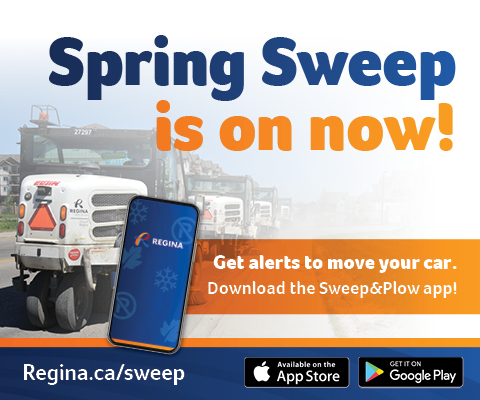Plastic
ndfill. The average Canadian uses 200-300 plastic checkout bags a year which means that Regina
residents produce millions of single use plastic bags annually. Even
if you reuse some of your bags, many are ending up in our landfill or littered throughout our
community. This ban will eliminate the excess from our community. Exceptions The ban only applies
to bags provided to customers at checkout. Businesses may only provide plastic bags for the
following purposes: carrying fruits or vegetables carrying freshly prepared bakery items or other
food items that are not pre-packaged transporting wrapped flowers or potted plants containing bulk
food items or bulk hardware items transporting live fish covering clothes immediately following
professional laundering or dry cleaning covering newspapers or other printed materials intended to
be left at the customer’s residence or place of business carrying prescription drugs received from
a pharmacy carrying fresh or frozen meat, poultry, fish or frozen foods whether pre-packaged or not
protecting linens, bedding or other similar large items that cannot easily fit in a reusable
container protecting tires that cannot easily fit in a reusable bag using at the customer’s
residence or place of business, provided such plastic bags are pre-packaged and sold in packages of
multiple bags Why a plastic checkout bag ban? To help inform your customers about the change, you
can find a variety of promotional materials to use in our Plastic Checkout Bag Ban Business
Toolkit. Business Toolkit Business Toolkit Info Package Facebook Posts Facebook Post 1 Facebook
Post 2 Facebook Post 3 Facebook Post 4 Facebook Post 5 Printable Posters Poster 1 Poster 2 Poster 3
Poster 4 Vinyl Cling Vinyl Cling without die line Vinyl Cling with die line Website Banner Web
Banner Image Business Toolkit Businesses can sign up to receive email
notifications about the Plastic Checkout Bag Ban Bylaw. We’ll send updates on: Updates on the Bylaw
Regulatory advisories and announcements Communication material to help inform customers and
employees Email Notifications Plastic Ban Ban Checkout Learn more about the
plastic checkout bag ban. Who does this Bylaw apply to? All food service, retail and service
businesses in Regina are required to comply with the Bylaw. This includes, but is not limited to:
Food vendors Retailers Second-hand stores Street vendors Vendors at festivals, special events, and
markets How is this Bylaw enforced? A designated officer will follow-up and investigate any
complaints. What is considered a plastic checkout bag? The Bylaw defines a plastic checkout bag as
any plastic bag that is intended to be used by a customer for the purpose of transporting items
purchased or received by the customer from a retail business, food service business or service
business but does not include a reusable container. What is a reusable container? The Bylaw defines
a reusable container as any receptacle or enclosure for holding a product for the purpose of
transporting items purchased or received by the customer from a retail business, food service
business or service business and includes, but is not limited to, a bag that is designed and
manufactured for multiple uses and is primarily made of cloth or other washable fabric. Is this
change expensive for residents? Customers may bring their own reusable bags to package groceries or
other purchases for free. Many retail businesses and food service businesses are also offering and
charging a fee for paper checkout bags, so a small investment in reusable bags will pay for itself
over time. Why does the bylaw only include plastic checkout bags? What about other single-use
plastic items? Since most people make in-store and grocery purchases, and reusable bags are easy to
bring from home, this is a simple way to address one type of plastic consumption. Residents are
still encouraged to reduce plastic in other areas of their everyday life such as switching to
reusable water bottles, coffee and beverage cups, skip the straw, etc. What about the Federal Ban
on Single-Use Plastics? The federal government has said single-use plastic items like plastic
checkout bags, straws and cutlery will be covered by a national ban coming. The regulations to
introduce the ban will be finalized by the end of 2022. Frequently Asked Questions
Not Sure Where to Put an Item? Check out the Waste Wizard tool to find out how to properly dispose
or donate common waste items. ...
Mosaic Stadium Rental Application Form
Use this form to request a booking at Mosaic Stadium.
Henry Baker Scholarship Program
The Henry Baker Scholarship Program is now open for 2025. The application deadline is May 31, 2025.
The City of Regina awards 18 scholarships annually to students
attending post-secondary educational institutions in Regina through the Henry Baker ...
Yard Care
up the sod until you have a clean space. Do not dig too closely or deep around City trees. Take
care to remove the layer of turf and no tree roots.Annuals,
perennials, low shrubs and vegetables Before planting, deposit a thick layer of fresh soil and
compost, appropriate for the plants being planted. Prepare to water your newly planted perennials
regularly for the first few seasons as they establish. Once the roots have been better established,
they should require less water. Choose drought-tolerant plants appropriate for the Saskatchewan
climate. The Regina Floral Conservatory has information on plantings appropriate for this zone. Low
maintenance landscaping ideas Cover the newly dug space with a layer of landscape fabric. This will
ensure that no remaining weed seeds or grass will grow through the mulch. Apply a thick (at least 7
cm) layer of mulch on top of the landscape fabric. Some great low maintenance and cost-effective
ideas are: Pine, spruce or cedar mulch Bark nuggets Small or medium pea rock, river rock or other
decorative rock (all rocks or stones to be less than 40mm or 1.5 inch diameter)
Boulevard Planting Tips
Lawn Care A healthy lawn will help prevent weed establishment and growth. Lawns require regular
mowing, watering and fertilizing. To help water reach your grass roots, you should aerate your lawn
and remove thatch. Aerating benefits your lawn by allowing water, oxygen, and nutrients to reach
your lawn's root system. It is best to aerate your lawn in the spring or fall if your lawn seems
compacted, or before fertilizing to help nutrients seep into the soil. One of the best ways to
fertilize your lawn and help the environment is to leave your grass clippings on your lawn. Provide
two to three cm of water every seven to ten days to grow healthy lawns with deep roots. Water in
the morning or evening when there is less wind and heat. Set your lawn mower wheel height at 7.5
cm. Mowing at a higher height promotes vigorous grass growth with deep root systems, which in turn,
discourages weeds and insects. Overgrown Vegetation on Private Property The Community Standards
Bylaw applies to private property and regulates the maintenance of properties and structures in
Regina. Property owners must not allow their property to become overgrown with grass or vegetation
taller than 15 centimetres (6 inches). Intentionally planted vegetation such as shrubs, perennials
or a vegetable garden are not considered a violation, even if the height exceeds 15cm. Overgrown
Grass Complaints Before you make a complaint, consider if the vegetation is over 15 centimetres
(six inches) high or not intentionally planted, such as a vegetable or perennial garden. If you
believe there is a problem with overgrown grass or vegetation at a property, submit a Service
Request online. The complaint will be forwarded to Bylaw Enforcement and assigned to an officer for
investigation. If the officer determines that a property owner is in violation of the Community
Standards Bylaw, the owner will be issued an Order to Comply requesting that the overgrown grass be
cut. Failure to comply with the Order may result in a violation ticket being issued or the
overgrown grass being cut by the City and the costs being applied to the property owner’s taxes.
Weed Control Act The Weed Control Act is a specialized regime concerned with managing prohibited,
noxious and nuisance weeds that may threaten humans, livestock, crops or the environment. Unlike
the Community Standards Bylaw, the Act is not concerned with aesthetics. Prohibited and noxious
weeds are those specific species considered to be a threat to agriculture, human health, or the
environment due to their invasive nature or toxic properties. Nuisance weeds are those species
targeted because of their aggressive behaviour over native species.
Regina’s Good Neighbour
Guide Regina’s Good Neighbour Guide provides an overview of Regina’s municipal bylaws that
govern city neighbourhoods and best practices for being a good neighbour. Regina’s Good Neighbour
Guide Lot Drainage Trees Boulevard Landscapes Agreement Weed Control Act Lot Drainage Flowers &
Gardens Yard Waste Depot Bylaw Enforcement
City Page January 21 2023
View the January 21 issue of City Page.
Shopping Centre Model Narrative
View the Shopping Centre Assessment Model Narrative.
Public Notice - Proposed Regina Police Services Campus
View the proposed development happening on Broad Street.
North Central Drainage Project
f the water main replacement until they can be safely returned to the underground water system.
Road Maintenance & Construction Service Notices Road Report
City Page March 11 2023
View the March 11 Issue of City Page.
Route 22 AUG 2023
Upcoming route change for Route 22, starting August 2023
Design Regina B.18 Yards Neighbourhood Plan
View Design Regina Part B.18 - Yards Neighbourhood Plan




